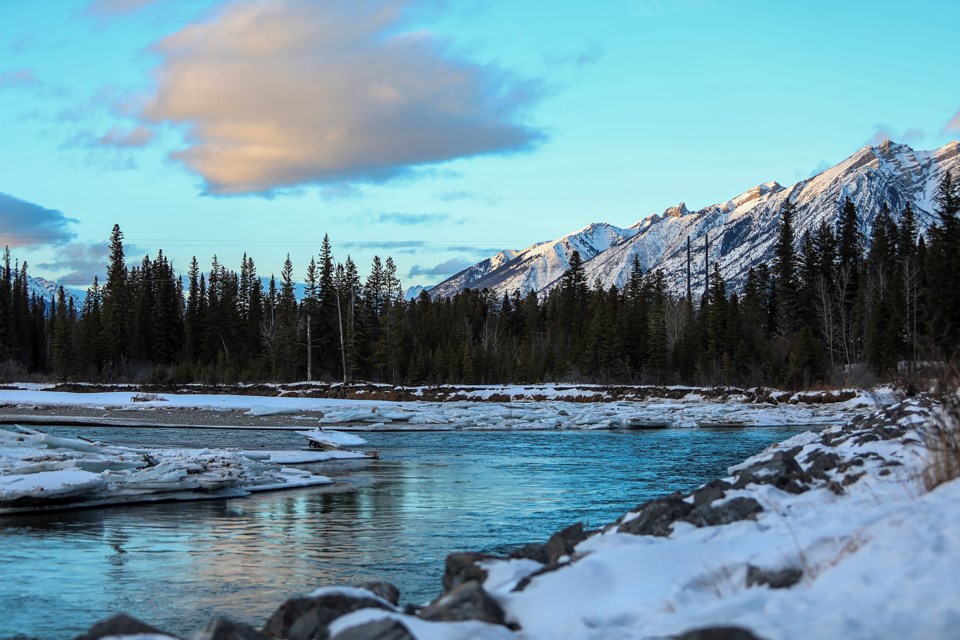After 25 years of exploring and explaining the global water and water-related climate crisis, I find myself at the limits of what I know and think, or even can think and the lies and misinformation I can tolerate regarding the global climate threat.
Nature is now providing new evidence daily of where we are going in terms of the breakdown of the global climate system, which is clearly occurring far faster than science, governments or even the media can keep up. One would have to be willfully blind not to see what is happening before our very eyes. Atmospheric, sea surface and land temperatures are presently off the charts in both hemispheres. Our boreal is burning and it seems that half of British Columbia is on fire. And now fallout from hurricanes off our west coast.
What we are seeing is beyond the worst-case projections of all climate model scenarios. All the warm pronouncements made to the contrary at global climate conferences notwithstanding, the ecological and related economic and political polycrisis, the world now faces has gotten completely away from us. The Secretary-General of the United Nations António Guterres is right. “The era of global boiling has arrived.” This changes the game – and the conversation – and it should.
The message from the future we are getting this summer is we are nearly out of time. If we want to avoid a three-degrees Celsius warmer world in the future, we have to catch up with and get ahead of the climate crisis now if it is still possible to do so. We are playing with real fire here. For decades, I rejected out of hand any notion of potential societal collapse. I thought the idea absurdly alarmist. That was then. This is now. Things have changed. We have to stop simply admiring the climate threat and do something about it – if we can – before our climate system collapses and we risk collapsing with it.
In order to understand better where rapidly accelerating climate heating impacts could take us, I stepped into the future for the past three years to speculate as best I could on what the world would be like if, by way of increasing inequality and inequity, the continued unravelling of the global geopolitical order, and the accelerated climate heating of our times, we could actually bring about the rolling collapse of our society. What I discovered on the other side of what our future might be like just ahead of the trajectory of this summer’s warming, was that if we weren’t careful, our society could indeed collapse.
Don’t think for a moment reporting this brings any pleasure. I am not a so-called “doomer.” While it would be easy to say so, no one in the climate science community wants to go out there and say “We told you so,” even if what we are seeing now is what we projected. That we were essentially right all along constitutes the most Pyrrhic of all victories – a victory that reveals not our success but our utter failure in making society believe in and trust science.
Now we find ourselves on the very nearly unstoppable trajectory we wanted at all costs to avoid, and with good reason. On the other side of collapse, we will live beyond urgency. On the other side of collapse, the situation quickly becomes such that one’s goals are reduced to saving oneself and as many of those you love as one can, and where possible protecting the rest of sentient life on this planet from mass extinction.
Lest you think it gives those of us in the climate community pleasure to have to speak in this blunt way, know that I hate having to do so. You would have to be a sociopath to want to be right in predicting what we now face. If the privilege of knowing didn’t come with responsibility for acting on what we know, I would be doing almost anything other than trying to convince people that, if they opened their eyes, they might see their lives and the futures of their children are in real danger.
These, however, are the times in which we live and the circumstances we face and there is no escaping them. Just as everyone before us who found themselves in deeply troubled times, we are confronted by challenges we must face if we don’t want to be consumed by them.
I can already report to you that you do not want to be here with me on the other side of catastrophe. I have crossed over to explore the other side of collapse so you don’t have to see what I have seen and what we might all expect.
I urge all of us to believe science and trust what we are seeing with our own eyes this summer and press hard politically for us to turn back from the future it portends now.
Bob Sandford is a senior government relations liaison in global climate emergency response at the United Nations University Institute for Water, Environment and Health. He lives in Canmore.




